I continued to have headaches right through my teens, putting it down to stress. I didn't have the best time in secondary school, so I assumed the headaches came from that. It was only when I got to the age of 20 that I thought, "this isn't right. I wake up with headaches sometimes, and painkillers don't always work" but still, I dismissed it as me being under stress or not wearing my glasses enough.
It was only a few years ago, when the "chronic headache" happened, that I actually did something about it. I remember it was sometime in November 2012, I was in work. I was walking down the stairs when all of a sudden this sharp pain hit me out of nowhere on the left side of my head. I felt dizzy and sick, and for a moment thought I was going to pass out and tumble down the stairs. Luckily, the dizziness passed, but the stabbing pain remained. It throbbed every now and again, and the only way I could describe it was like this:
"imagine if the brain felt pain, and was really sensitive to it, then imagine someone squeezing it in a pulse motion, then poking the left side with a sharpened fingernail, and the pain goes all the way through the left side of the brain".
That's what I said to my doctor when I finally decided I'd had enough and made an appointment.
I was referred to a specialist, who again asked me to describe the pain. They told me that if it was anything serious, something bad would have happened to me by then - it had been over three months, I'd gone through Christmas, New Year and my birthday with these awful headaches. I was happy it was nothing serious, but I still wanted to know what was going on and whether the headaches would ever stop. I was waking up to them, and going to sleep with them. The stress of the headaches hadn't helped either, so my sleeping pattern was all over the place, I felt low and I was forgetting things all the time. I was given an MRI scan, one of the most uncomfortable things I have ever experienced. The results came back clear, and FINALLY, the doctor diagnosed me with migraine.
I decided to research migraines online. I had heard of them before, but I always thought they were just really bad headaches. I discovered that it's not just a standard headache and that it is, in fact, a chronic neurological disorder. The cause is unknown, and it is more likely to be found in women, especially women who have relatives who suffer from the condition. I, unfortunately, drew the genetic short straw - my dad and my grandmother both suffer from migraines and I am female, so it was pretty damn likely I was going to inherit the condition. In a good month, I might have two migraines. In a particularly bad, stressful month, I might have 5 or 6. I've been dealing with this for a while now, and I think I've found ways to help reduce my chances of getting a migraine and how to help it go away quicker when I do have one:
1. Lie down in a dark room.
As a child, whenever I went to see my grandparents with my dad, I noticed my nan often disappeared into the back room, and I was told not to disturb her. I asked why, but being so young I probably wouldn't have understood and was just told that she needed to lie down. I found out years later that it was due to her having a migraine, and after being told I have it myself, I tried it too. It does help - there's no light, very little sound and helps you relax. I also found that the sound of a ticking clock helped too - the rhythmic, soft tick relaxes me (on a weird side note, the sound of a ticking clock used to freak me out a little) and sends me into a trance-like state. Sometimes, the headache eventually subsides. Sometimes it doesn't. In that case, I try...
2. Taking a hot bubble bath.
I tried this recently after lying down for three hours didn't seem to do the trick. I ran a bath, used one of my
Lush bath bombs and some lavender bath salts (although next time I want to try
oils), as well as some of my
Soap & Glory bubble bath. I instantly felt better, my muscles relaxed, my head felt lighter and less foggy, and the pain slowly faded into a dull ache that I found I could function much better with. Again, though, this doesn't always work, but you could always try...
3. Changing your lifestyle and/or diet.
This can be more of a long-term solution, and the main thing to look for here is triggers. I was told by my doctor to avoid caffeine, cheese, chocolate and red wine - three of those I consume on frequently. I decided to keep a food diary and keep track of the frequency and intensity of my headaches. I found that drinks with high caffeine content give me headaches, as well as red wine (which I'm not fond of anyway). Thankfully, cheddar and mozzarella cheese did not cause headaches, and neither did a certain amount of chocolate (although too much can). Alcohol can also cause headaches, depending on what I have, and so can a lot of tea and coffee. I can't do too much exercise, which is unfortunate - intense workouts give me the most painful throbbing sensation, so I try to do gentle exercise instead.
The first two options on this list are easy if you have the time, but what about working people? In my case, working in a bar was probably the worst thing for my headaches - loud music, loud drunk people, flashing lights - it was everything I should avoid whenever I have a migraine. Using computers can make my headache worse too, the bright light of the screen making my head pound and my eyes ache. In these cases, I tried...
4. Wearing ear plugs.
In my job before my most recent one, work started usually around 10 pm and finished at 3-6am, depending on the night. We spent the majority of the night listening to loud, bassy dance music, while customers shouted orders down our ears. We were issued with a set of ear plugs, similar to the ones pictured above, and at first, I didn't bother using them - I found them particularly uncomfortable. It was only until I went through my chronic headache that I began wearing them, and found them actually quite helpful. While they didn't completely block out noise, they made everything quieter and more bearable.
5. Wear sunglasses.
This might sound completely ridiculous, and people I've mentioned this to often laugh, but sometimes it's the only thing I can do. I've had my fair share of nasty headaches, and I've found that wearing sunglasses both outdoors and indoors helps - it stops me squinting at screens and, although it doesn't make my headache any better, it certainly doesn't make it any worse. I mostly wear them when I have a moderate-to-bad headache and I absolutely have to use a computer or look at a screen. My laptop permanently has the brightness turned down to the lowest setting as well, only very rarely will I turn it up - definitely not when I have a headache.
6. Take painkillers.
A month before my MRI scan, I was advised by my doctor to not take any form of painkiller. He told me that taking a painkiller will only suppress a headache temporarily, and as soon as the effects wear off the headache will return. I attempted this for one month (this was during my chronic headache) and actually hated my doctor for suggesting this. I was desperate to have some kind of relief, and sneakily had the occasional painkiller (rebel). However, this was not the only reason he suggested I not take any - sometimes painkillers can give you a headache
if you take them too often. Now, I only take painkillers when none of the above has worked and the headache is becoming too much to handle. But if that doesn't work, and nothing else works, the only thing you can do is...
7. Go home, and refer to #1 and #2.
If the pain becomes too much and you find yourself unable to function, there's no point in you staying in work, as you won't be able to produce very much. I told my previous boss about my migraines, and he understood that, in the event of a really bad one, I might have to request to go home. I only did this once, thankfully, and while it is frustrating, there's not much you can do. If the headache doesn't go away after three days, make sure you...
8. Go to the Doctors.
I was prescribed with antidepressants, which sounds bizarre, but I was told that
antidepressants are often prescribed to people who suffer from the kind of constant migraine I had. My daily headache began to dull, and one day I woke up headache free. After a short while longer on the antidepressants, my headaches had dramatically reduced to a couple per month lasting no more than three days, depending on certain factors of course (stress levels, diet etc.)
Nowadays, I always carry painkillers around with me, so that if I find myself in a situation where I cannot do any of the above and the headache is almost too much for me to bear, I can help settle it with some Migraleve or paracetamol, and just hope it works. I try to avoid taking painkillers too much, though, for fear of having a medication overuse headache (
MOH). I deal with my headaches much better now and hope that one day the condition will decrease in severity and I won't have to suffer as much anymore.
You can also support
The Migraine Trust, a charity who "seek to empower, inform and support those affected by migraine while educating health professionals and actively funding and disseminating research."
Do you suffer from migraines? How do you deal with it? Comment below!







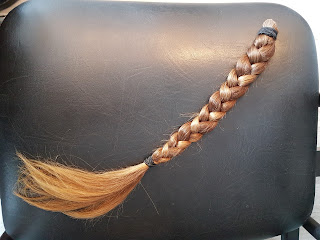

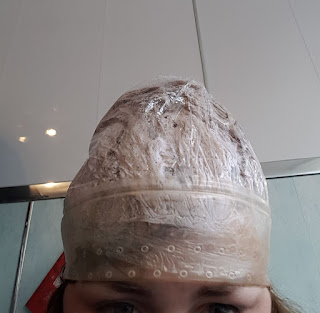
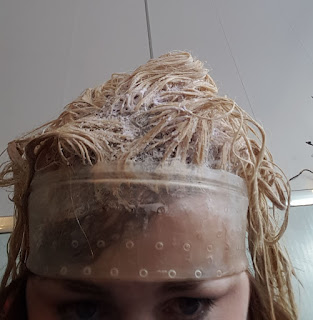
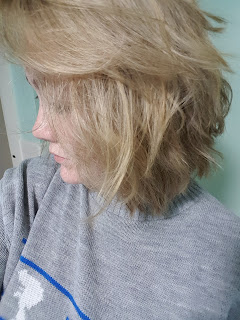


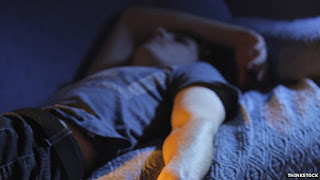
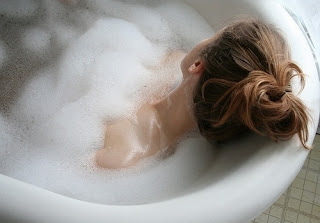



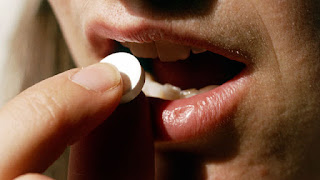
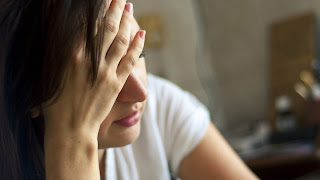




 I've had quite an eventful year so far. The most recent event being my short holiday to Magaluf, Mallorca. A co-worker of mine decided to go away for the summer, and the other girls in work thought, "Hey, about we go over for a few days to see her?" I haven't been abroad in around 9 years, so of course I agreed. The flights, hotels and the place itself seemed relatively cheap for a holiday, something I could definitely afford anyway.
I've had quite an eventful year so far. The most recent event being my short holiday to Magaluf, Mallorca. A co-worker of mine decided to go away for the summer, and the other girls in work thought, "Hey, about we go over for a few days to see her?" I haven't been abroad in around 9 years, so of course I agreed. The flights, hotels and the place itself seemed relatively cheap for a holiday, something I could definitely afford anyway.